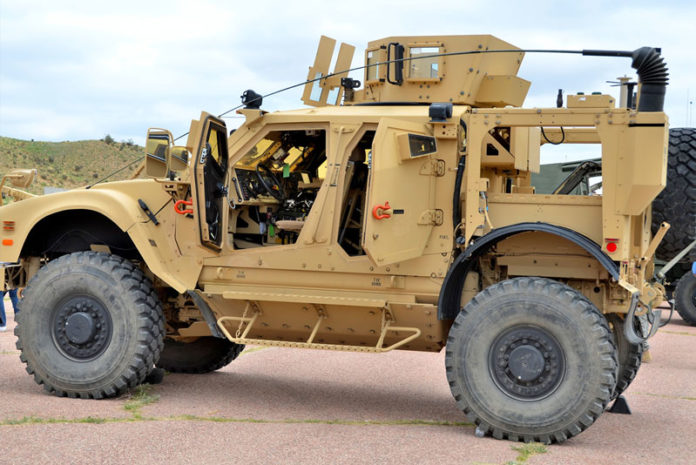The House easily passed their version of the 2018 National Defense Authorization Act (NDAA), in a stunning bipartisan vote of 356 to 70. The bill approves $692 billion in defense spending, far more than what Trump’s White House requested.
The bill will also fund a 2.4% pay raise for both active duty and reserve soldiers, while funding the purchase of all new military equipment. The bill finds funding for new ships, planes, missile systems and other tools of war that the US will need to keep it’s global edge over adversaries and potential adversaries alike.
“As the world grew more dangerous, we cut our defense budget, and we added to the burden borne by the men and women who serve us,” the Committee Chairman Mac Thornberry said. “We will not rebuild and fix our problems in one year or with one bill even when it is matched by an appropriations bill, which this will need to be. But we can head in the right direction. That’s what this conference report does.”
Representative Adam Smith, a member of the committee, further added that “This is a very good product. The challenge that we have going forward is what the chairman mentioned at the end there. This bill … goes roughly $80 billion over the budget caps. The bill can’t do that on its own. Unless the budget caps are lifted and the appropriators pass the appropriations bill that doesn’t happen. And we haven’t made a lot of progress on that, the right thing for our troops and the right thing for our country.”
Other than the money, the bill also makes a lot of various reforms that were essential and critical to the military’s space operations, though this was not the part of the House’s original proposal for a Space Corps.
The bill would be requiring the deputy secretary of Defense to contract a federally funded research and development corporation that is not associated with the Air Force to study all the possibilities of creating a Space Corps in the future.
It would also eliminate all the principal advisers for space, the Defense Space Council and the deputy chief of staff for handling the space operations, which the lawmakers felt added further unneeded layers of bureaucracy.
The bill would further give the Air Force Space Command sole authority for organizing, training and facilitating all the space forces within the Air Force wings.
“This year’s bill takes the first step to fixing the broken national security space enterprise within the Air Force,” said Representative Mike Rogers, “it’s the first step in a long path to getting space right for the betterment of our warfighters. Hopefully, over the coming year, the Senate will focus on the chronic problems facing national security space and work with us to establish a separate Space Corps.”
Despite Tuesday’s overwhelming approval, one NDAA provision that still remains extremely controversial is the language that would let the Pentagon sign off on the unapproved medical devices and drugs for all the emergency use on the battlefield, rather than the FDA.
Because of this provision, the House approved a new rule on Tuesday that says that the House clerk would not officially send the NDAA to the Senate until that particular chamber approves a separate House bill that narrows down the provision.
In a joint statement, Thornberry and Smith said that they support the compromise bill and that it would allow for the expedited FDA approval in military medical emergencies, rather than giving the Pentagon all the approval authority.
“Although we still have concerns about the impact, it would have on our men and women in the field, we are content to let this compromise move forward in the hopes of improvement,” Thornberry and Smith said in a joint statement. “To be clear, if the Armed Services Committee does not see evidence that the FDA is doing a better job meeting the needs of our troops, we will not hesitate to take action.”

































